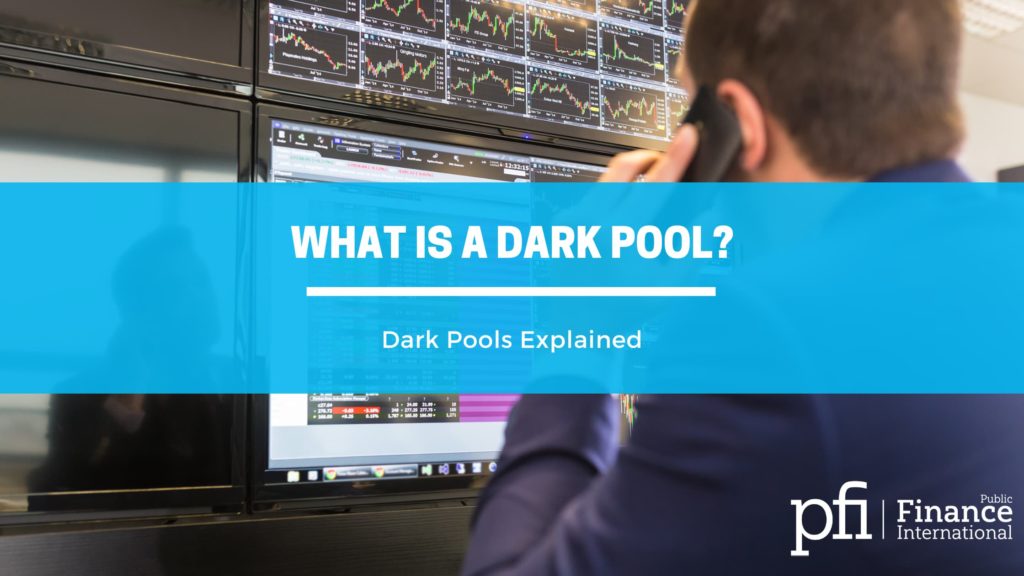A dark pool is a private financial market where large investors can trade securities away from the public markets. The term “dark pool” refers to the fact that these markets were conducted in complete secrecy, with no visibility to outsiders. Dark pools are now primarily electronic, and trades are often reported publicly. What are the benefits and drawbacks of dark pools? These questions and more are answered in this article.
Basics

A dark pool is a privately organized securities exchange. Unlike a stock exchange, it is an alternative trading system (ATS) that does not publish quotes or trade information to the public markets.
Institutional investors, such as banks, hedge funds, and high-net-worth individuals, typically used dark pools. They allow investors to trade large blocks of shares without revealing their intentions to the broader market. This can provide a level of anonymity and liquidity for large investors. Although the lack of transparency, dark pools are legal in the United States and heavily regulated by the Securities and Exchange Commission (SEC).
Rise of Dark Pools
Dark pools were created in the 1980s by big banks that wanted a way to trade large blocks of stock without moving the market. For example, if a bank wanted to buy millions of company shares, it would not want everyone to know because that could drive up the price. So, the bank created a dark pool where it could trade anonymously.
Today, dozens of dark pools are run by banks, brokerages, and other financial firms. Dark pools account for about 18% of all U.S. stock trading, up from just 9% of European trading volume. They make up a small but growing part of the stock market.
Rise of The Internet

Electronic trading has made it easier for institutional investors to trade large amounts of securities. This has led to a surge in the popularity of dark pools. Dark pools account for a growing percentage of all U.S. stock trades, and their popularity is expected to continue to rise.
Benefits
There are several benefits of using dark pools. First, they offer anonymity to their participants. This allows traders to trade without revealing their intentions or strategies to the broader market. This can lead to better prices for everyone involved in the market.
Second, dark pools allow large institutional investors to trade without moving the market. This is important because these investors often have to trade large amounts of stock, and if they were to do so on a public exchange, it would likely move the stock price, which is not ideal.
Third, dark pools can provide liquidity to the market. This is important because it allows for more efficient trading and can help reduce the market’s overall volatility.
Fourth, dark pools can help to level the playing field between large institutional investors and small retail investors. This is because dark pools allow small investors to trade without being at a disadvantage due to their size.
Finally, dark pools can help to create more efficient markets. This is because they allow for more informed trading and can help reduce the overall trading costs.
Drawbacks
While dark pools can provide some advantages for traders, there are also some potential risks. The main drawback of dark pools is that they are opaque and difficult to monitor. It is hard to tell how much liquidity is available in the market and how the prices are set. This can make it difficult for investors to make informed decisions.
Another issue with dark pools is that they can be used to manipulate prices. For example, if a prominent trader wants to sell a stock, they can use a dark pool without affecting the market price. This can make it difficult for other investors to get a fair price for their stocks.
Finally, dark pools can create a two-tiered market where only the largest and most sophisticated investors can access the best prices. This can make it harder for small investors to compete.
What Is The Future Of Dark Pools?
Despite the controversy, dark pools have become an increasingly popular way to trade stocks and other securities. They will likely continue to grow in popularity in the years to come.
